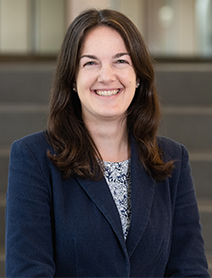About
Emily Tucker is an assistant professor in the Department of Industrial Engineering at Clemson University. Her research focuses on applying operations research to societal problems, including health care policy, operations, and supply chain resiliency, with methods that include stochastic optimization and mathematical programming. Through collaborations with clinical partners, she has studied policies to reduce drug shortages in the United States and worldwide; expectations of kidney transplant recipients; nurse scheduling; disaster relief efforts; and national HIV/AIDS policy. She has active collaborations with the Emergency Department at Prisma Health.
Tucker received her Ph.D. and M.S.E. in industrial and operations engineering from the The University of Michigan. She was part of the National Science Foundation Graduate Research Fellowship, and her dissertation work was awarded the University of Michigan Richard and Eleanor Towner Prize for Outstanding Ph.D. Research. Before graduate school, she worked as a research health economist at RTI International and received her bachelor’s degree in industrial engineering from North Carolina State University.
Visit Dr. Tucker's Faculty Profile.
How their research is transforming health care
Complex decisions and uncertainty are inherent in our health care systems, and Tucker’s research seeks to improve decisions by managing both. In the face of global disruptions to pharmaceutical suppliers and manufacturers, she has developed optimization models to design supply chains that can mitigate these disruptions and incentivize companies to be more resilient. To address ongoing HIV/AIDS policy decisions, she co-developed a compartmental model to study transmission within the U.S. evaluate potential interventions (in collaboration with the CDC and RTI International). At the local health system level, she has developed an optimization model that produces monthly staff schedules for hundreds of nurses despite numerous constraints. By developing new mathematical optimization models, she can help her clinical colleagues address challenging processes and support difficult decisions to improve patient care.
News and media related to their research
- The Conversation - "Medical Supply Chains are Fragile in the Best of Times and COVID-19 will Test Their Strength"
Health Research Expertise Keywords
Faculty Scholar, Drug shortages, process improvement, clinical decision-making, uncertainty, optimization, math model, HIV/AIDS, kidney transplantation

